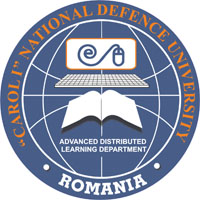THE SIGNIFICANCE OF PRIOR KNOWLEDGE IN PHYSICS LEARNING
THE SIGNIFICANCE OF PRIOR KNOWLEDGE IN PHYSICS LEARNING
Author(s): Cristian HATU, Andreea EŞANUSubject(s): Education
Published by: Carol I National Defence University Publishing House
Keywords: Physics learning; prior knowledge; constructivism; evidence-based research
Summary/Abstract: In constructivist literature, there are three main accounts of the role that children's prior knowledge plays in learning Physics and in developing mature scientific views: the knowledge-as-theory, the knowledge-as-elements and the knowledge-as-system accounts. The first one defines children's prior knowledge in terms of naive theories which are incorrect but display enough coherence to resist restructuring. In this view, the purpose of Physics education is to find ways to dislodge children's naive theories and replace them effectively with scientific concepts. The second account interprets prior knowledge as a scattered map of knowledge elements that children develop on their own based on previous day-to-day experience. Contrary to the first account, the second one stresses that such knowledge elements are mostly correct, but what they miss is a coherent system of relations to link them properly. In this view, Physics education is expected to develop children's existing knowledge elements into consistent sets of scientific beliefs. The third account defines prior knowledge in a more complex manner. The knowledge-as-system account highlights a series of dynamic and heterogeneous properties that most children's concepts about nature seem to possess. In this view, children's naive ideas display both knowledge-as-theory and knowledge-as-elements characteristics, so the task of Physics education is to address each characteristic in a differentiated manner and with adequate instruments. Keeping this background in mind, the main aim of the present paper is to evaluate constructivist accounts of children's prior knowledge from the point of view of a pragmatic evidence-based approach to learning scientific concepts - i.e. which of these views is convincingly supported by empirical research in Physics education and what are we to understand about children's knowledge from empirical investigations of scientific practices in the classroom.
Journal: Conference proceedings of »eLearning and Software for Education« (eLSE)
- Issue Year: 11/2015
- Issue No: 03
- Page Range: 477-482
- Page Count: 6

